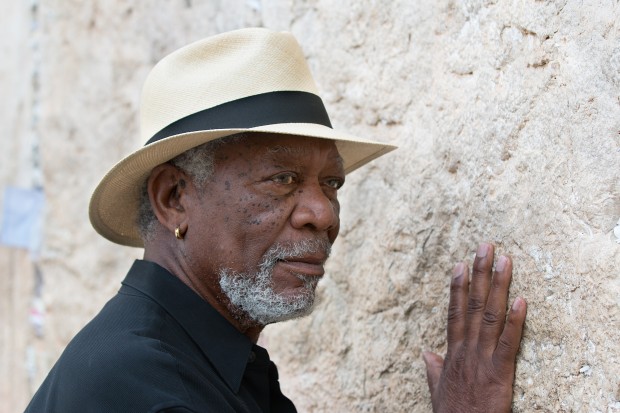
On the heels of Holy Week, National Geographic presents The Story of God, an ambitious, expansive six-part series hosted by Morgan Freeman. This is an impressive interfaith study, with Freeman traveling to Israel, Egypt, Turkey, Guatemala, India and beyond in search of God, or at least humanity’s efforts to reach God. From the Temple Mount in Jerusalem to bathers on the Ganges, we follow Freeman and his guides to spiritual hot spots connected to prophecies and religious rites. Digital imagery allows us to see what early worship sites looked like and dramatic recreations place us within the action from Roman battles to Mayan rituals. The Story of God also seeks to reconcile religious beliefs with recent scientific breakthroughs. Could our sacred creation stories be corroborated by modern astronomy? The Story of God seeks to affirm rather than debunk belief.
Morgan Freeman’s personal narrative serves as a through line across the series. He seeks to answer questions about his own sense of loss in dealing with deaths in his family. Freeman engages in a variety of religious practices—from the Christian church he grew up in Greenwood, Mississippi, to meditating with a Buddhist monk, to lighting candles along the Ganges in India.
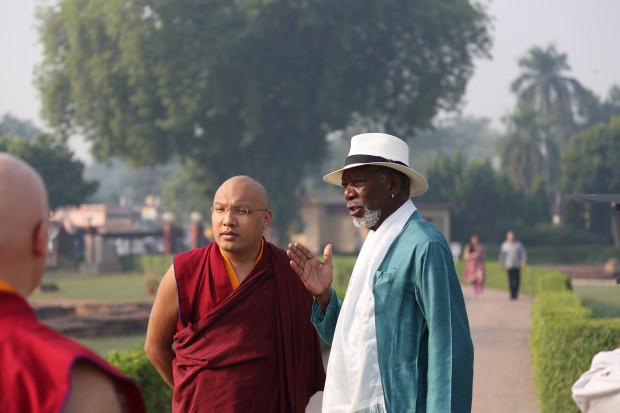
There is impressive scope to the series. So many countries are visited in this travelogue. Freeman zips from venue to venue at a brisk pace. Professors, pastors and imams serve as local guides. The reliance upon archeologists to explain the roots of religious practice are helpful, with inside look at digs in Turkey and Guatemala. We peek underneath the Church of the Sepulcher and visit the caves of the Essenes’ community in Qumran where the Dead Sea Scrolls were found.
The Story of God is a great overview for religious seekers trying to understand what distinguishes the monotheism of Judaism, Christianity, and Islam from Hinduism or Buddhism. Morgan Freeman’s sense of wonder is infectious. Almost everyone and everything he encounters fascinate him, but the series never really goes into the distinctions between religions. It is an earnest effort to suggest that the beliefs that drive us could also unite us. And that science need not be divorced from faith.
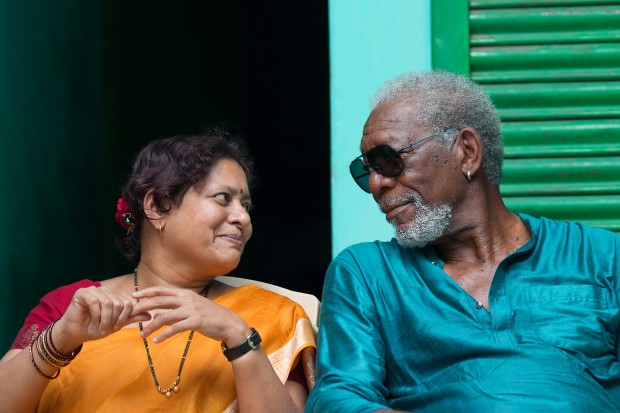
It reflects the eclectic beliefs and religious pastiche of Freeman himself. One episode praises Mayan creation stories, while another celebrates a Buddhist understanding of life as a constant series of death and rebirths, rather than a culminating end of days.
The most memorable sequences reveal things we may never have heard or seen. Aboriginal creation stories in Australia have a fascinating connection to the stars. Freeman travels to the Guatemalan border to participate in a Mayan creation ritual. He imbibes both as an act of reverence, but also public education. Maybe the Mayans did not predict the end of the world in 2012 at Tikal, but rather a series of epochs. So what might our post 2012 world look like?
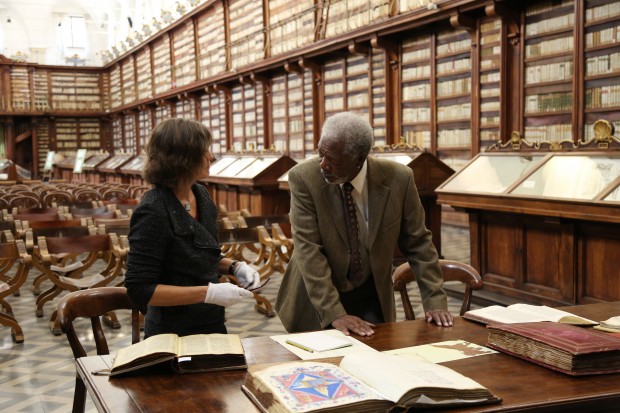
The most important episode I previewed was about apocalypse, the end time’s stories that haunt our cultures. Freeman consults a bible scholar in Rome who reveals why the number 666 in The Book of Revelations need not be feared. We learn how the ancient Roman emperor Nero may have already fulfilled the prophecies espoused in the Bible. This can help us focus upon what we clearly called to do, to love and serve each other, rather than to obsess about what might be.
When Freeman sits down with a former radical Islamist, he discovers the beliefs which drives the decision-making of ISIS. It is quite helpful to understand how their beliefs and texts regarding the establishment of a Caliphate and a showdown within Syria are shaping geo-politics. Our ignorance regarding world religions has gotten us into political trouble. Perhaps the genuine interest and willingness to learn displayed by Morgan Freeman can keep us from repeating mistakes, falling into religious traps that could initiate a catastrophic apocalypse.
The scientific excursions in The Story of God cover a wide spectrum. The artificial intelligence explored in the first episode struck me as more creepy than inspiring. Yet, many definitely place their faith in technology’s ability to potentially overcome death. It was intriguing to consider how the anticipation of an apocalypse may actually reduce the psychic scarring that can arise from calamity. Research suggests that rather than serving as an escape, our religious beliefs could prepare us to face our worse fears.
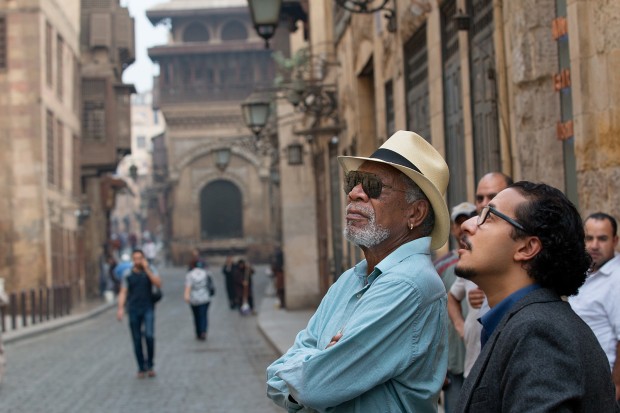
The Story of God is an expansive, expensive, and sincere effort to educate us all about each other. At a time of grave misunderstandings, Morgan Freeman’s team at Revelations Entertainment and National Geographic are engaged in a work of major public interest and social good. For both believers and skeptics, The Story of God is highly recommended. Set your DVR for the next six Sundays.

